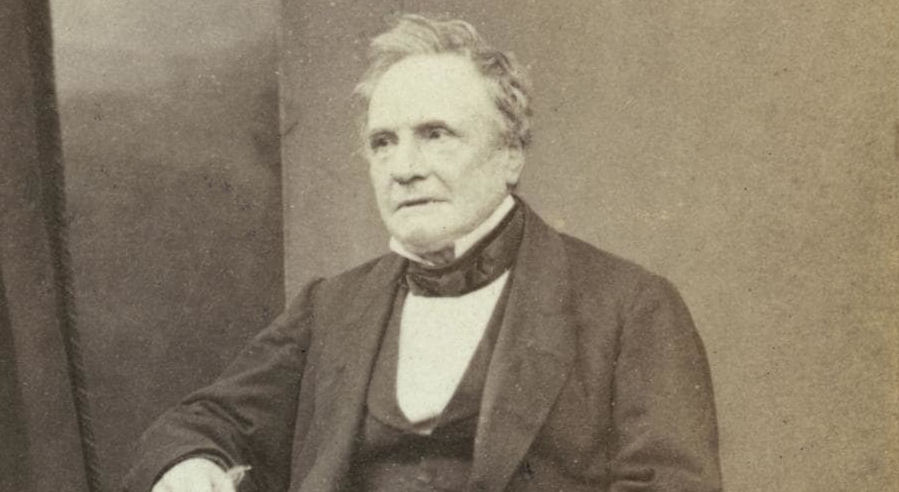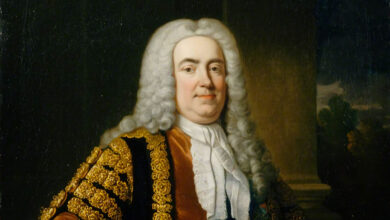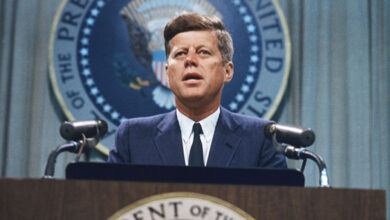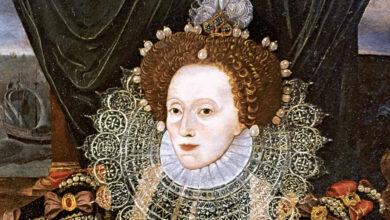
“It is therefore not unreasonable to suppose that some portion of the neglect of science in England, may be attributed to the system of education we pursue. – Charles Babbage.
Podcast: Play in new window | Download
Subscribe: Spotify | Amazon Music | Youtube Music | RSS
Charles Babbage Biography
Often considered the father of computing, Charles Babbage was an 18th-century polymath, meaning he was a person who had expertise in several different subject areas and possessed the ability to take the complex and create solutions from them. In Charles’ case, he was a man who modern space agencies would have loved to employ – a mechanical engineer, mathematician, and inventor most well-known for creating the concept of the programmable computer.
Babbage was born on 26 December 1791 in London. Sadly he developed a bad fever at the tender age of eight so he was sent to a country school near Exeter. Later he would attend King Edward VI Grammar School in Totnes, but again his health failed and he had to have a private tutor assist him. Afterward, he attended the Holmwood Academy in Enfield, Middlesex.
The academy only had thirty students as well as a library that provoked Charles’s passion for mathematics. After leaving the academy, he continued studying with other private tutors. His first tutor was a clergyman near Cambridge. His second tutor was from Oxford through whom Charles excelled in classics so much so that he qualified to be accepted by Cambridge.
Babbage began learning at the University of Cambridge in 1810 at age nineteen. Being previously self-taught in many areas of mathematics, Charles was disappointed in the basic mathematics taught there. Charles Babbage helped to form the Analytical Society whose desire was to promote the Leibnizian notation for calculus. (This is the notation convention that uses dx and dy for infinitesimally small increments of each character.)
He was also a member of the Ghost Club, an organization that investigated supernatural happenings. Transferring to Peterhouse, Cambridge in 1812, Babbage was the top mathematician. Despite this, however, he did not graduate with honors but received a degree without examination in 1814.
1814 would prove to be a good year for him. Not only did he graduate university that year, he and a friend, Edward Ryan, would marry the Whitmore sisters. Babbage would go on to have nine children.
The Analytical Society that Charles Babbage had helped form while in college soon began to be more than just a collegiate exploit. He and some of his colleagues translated the French mathematician Sylvestre Lacroix’s calculus work into English and subsequently published it.
Life would not be so good for him when it came to finding a career. He kept applying for jobs but kept getting turned down, time and again. In 1820 Babbage helped found what would become the Royal Astronomical Society to support astronomical research, aiming to standardize astronomical calculations as well as circulate data.
It was his time at the Royal Astronomical Society that would begin to make his mark in the world. He was interested in ways to correct errors in math tables, and he created the “difference engine” which he revealed to the world on 14 June 1822 in a paper entitled, “Note on the Application of Machinery to the Computation of Astronomical and Mathematical Tables.” This machine could calculate polynomials using a mathematical method called the differences method. They approved of the idea, as did the government who granted him £1500.
In 1824 he won the Royal Astronomical Society Gold Medal for his invention of the “difference engine” that was capable of calculating mathematical and astronomical tables. Some consider Charles Babbage to be the father of the modern computer because of his inventing the first programmable computer that paved the way for more complex models in the future.
Charles took this discovery and ran with it. He converted a room in his house into a workshop, designing each tool himself as well as making them all by hand. He studied other industrial workshops and took notes so he could better understand how the manufacturing process worked. In 1832 he published another document called, “On the Economy of Machinery and Manufacture”.
In 1827, Babbage became quite wealthy after his father’s passing, inheriting an estimated £100,000, equivalent to £7.81 million in today’s pounds.
Despite his early days leading to an unsuccessful teaching career, from 1828-1839 Charles Babbage was the Lucasian Professor of Mathematics at Cambridge, a very prestigious position. Although he was not attentive to teaching, during this time period he did write three topical books. That did not endear him to his colleagues, who grew increasingly frustrated with his lack of lecturing time. He would end his time at Cambridge having never actually given a lecture.
Along the way, he developed quite an interest in politics. He ran twice for Parliament for the borough of Finsbury. Like his early efforts to find work, he was not terribly successful at politics either, and lost by 500 votes in 1832, placing third out of five candidates.
Between 1833 and 1842 Charles Babbage was busy creating a machine that could be programmed to solve any type of equation, not just polynomials. The engine consisted of two parts: the mill and the store. The mill, similar to a modern computer’s central processing unit, executed the operations on values retrieved from the store, which we would consider memory. He had thus created the world’s first computer.
After creating this machine, he set about to craft another “difference engine”, but this time try to use a lot fewer parts. He worked on this from 1846-49, and when complete, the new machine would use only 8,000 parts – something that was unheard of at that time. But he never actually made it.
Charles Babbage died on 18 October 1871, leaving behind quite a legacy and inspiring many inventors and philosophers including Karl Marx, John Stewart Mill, and John Herschel. But there was still the unfinished business of his new engine, the one he never made.
British researchers in 2011 decided they would try to make his engine. Though it will cost multiple millions of pounds to create, it was deemed a worthy cause. The goal is to have it completed by 2021, the sesquicentennial of Babbage’s death. By modern standards, the computer is weak, having only the equivalent of 675 bytes of memory; and it would be incredibly slow, running at 7 Hz. Still, for a device devised 100 years before the first modern computers, it is quite powerful, and it stands as a testament to the ingenuity and genius of Charles Babbage.
Podcast: Play in new window | Download
Subscribe: Spotify | Amazon Music | Youtube Music | RSS




